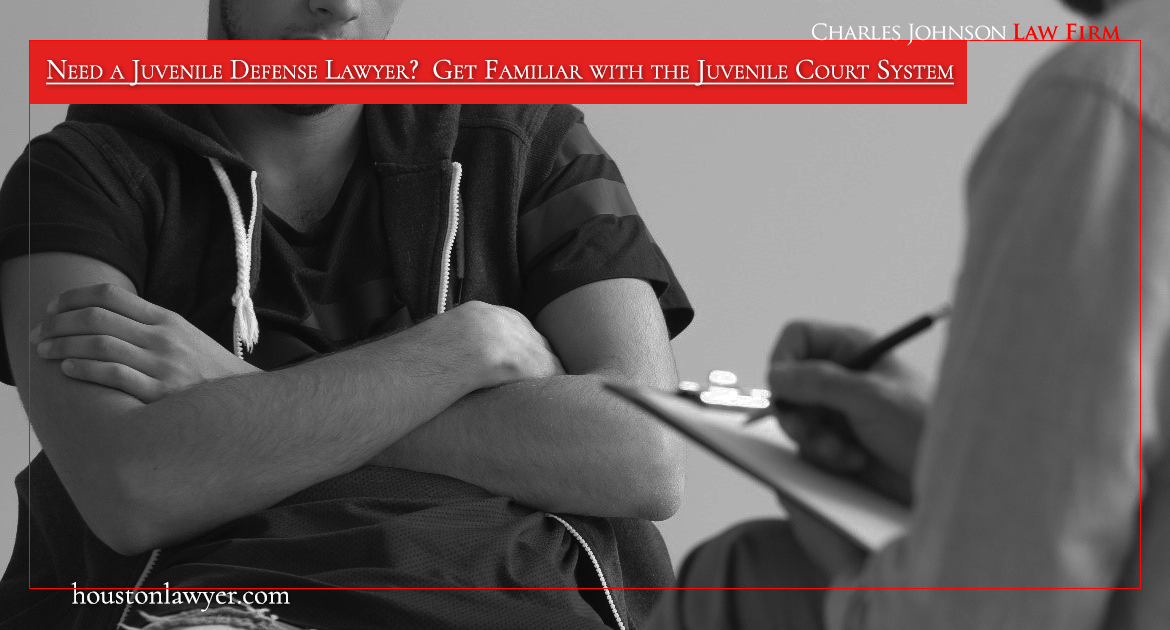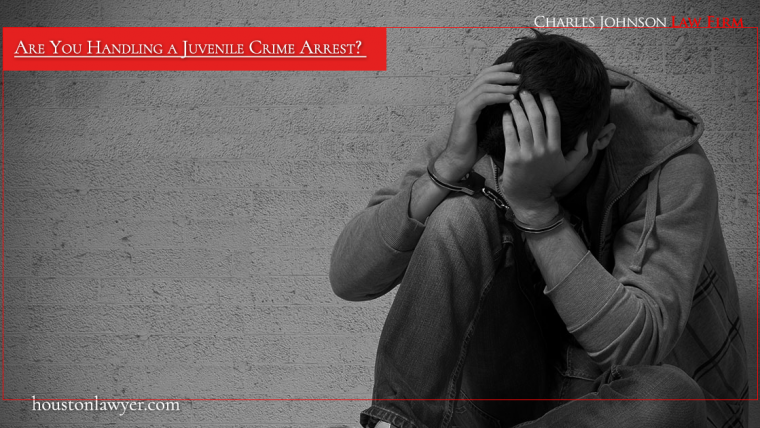You are entitled to the best legal defense possible. Houston Criminal Lawyer and Juvenile Defense Expert Charles Johnson can deliver that defense for you. You can contact Houston Juvenile Offense Lawyer Charles Johnson day or night, 24 hours/day 7 days/week and speak with him directly at (713) 222-7577. His Law Office is headquartered in Houston, with offices conveniently located in Dallas, Austin and San Antonio. You can take advantage of your Free Case Review right over the phone and speak directly to Attorney Charles Johnson. Call Today and let him go to war for you to save your family’s future.
Houston Criminal Lawyer and Experienced Juvenile Defense Attorney Charles Johnson can be reached 24 hours a day, 7 days a week for your Free Case Review and Consultation.
Call us at 713-222-7577 or toll free at 877-308-0100.
Major Credit Cards Accepted.
Easy Payment Plans Available.
Criminal defendants who haven’t quite reached the age of majority (18 in most states) go through a different criminal justice system than the one most people are familiar with. Here is an introduction to what goes on in the “juvenile justice” system:
Who Goes To Juvenile Court
The age group covered by the juvenile court system varies from state to state, but in general most courts follow these general guidelines:
- Juveniles under the age of 7 generally can’t be tried, even in juvenile court. Their parents, however, may be liable.
- Children between the ages of 7 and 15 are prime candidates for juvenile court.
- Children as young as 12 and as old as 18 are typically taken to juvenile court, but increasingly, prosecutors are trying children in this age group as adults for very serious crimes.
Detaining a Juvenile
Police officers do not necessarily have to refer a Juvenile suspect to juvenile court. The leeway a police officer is given depends on the state, but in general he or she can elect to:
- Detain the Juvenile and warn about the consequences of committing the crime before releasing the minor.
- Detain and hold the Juvenile until the minor’s parents or guardians arrive and then release the minor.
- Take the Juvenile into custody and refer the minor to a juvenile court officer.
Deciding Whether a Juvenile Goes to Juvenile Court
Once a case is referred to juvenile court, a juvenile court officer (often a probation officer) or prosecutor will then make a decision on whether to dismiss the matter, handle the matter “off the record”, or file formal charges for the crime.
Handling the Matter “Off the Record”
Even if a juvenile court officer decides not to formally pursue the matter, he or she may still require the minor to appear before the officer or a judge. The officer or judge has a great deal of discretion in dealing out informal judgments, and will at the very least lecture the minor. Other potential remedies include requiring counseling, paying a fine, repaying the victim, performing community service or putting the minor on probation. Also, if the juvenile court officer believes that the child has been abused or neglected, he or she may initiate proceedings to remove custody of the child from his or her parents.
Filing Formal Charges
If charges are filed against a minor, here is what you can expect:
- The arraignment: the minor will be formally charged before a juvenile judge.
- The hearing: the court will either take jurisdiction over the case, or if the juvenile is to be tried as an adult, the judge will set a “certification hearing” to establish whether this is an appropriate option.
- Entering a plea: the minor enters a plea and based on that plea, may proceed to trial.
- Going to trial: juvenile court is substantially different than adult court and a judge, not a jury, will likely be the one hearing the evidence and deciding the guilt or innocence of the defendant.
- Sentencing: if the judge concludes that the charges are true, then the judge will sentence the minor accordingly.
- Post-sentencing: often, minors will be required to appear before the court periodically to track progress.
How to Avoid Formal Charges
Juvenile court officers and prosecutors consider a wide variety of factors when deciding whether or not to file formal charges. Here’s a list of the most common factors:
- The severity of the crime.
- The minor’s attitude.
- The minor’s age.
- The minor’s past record or past problems.
- The evidence of wrongdoing.
- Whether the parents seem capable of controlling the minor.
- Whether the minor has an attorney.
Unfortunately, other far less “fair” factors may come into play, such as the minor’s appearance, gender (boys are more likely to have charges filed), socio-economic status and ethnicity. Remember, it always pays to be polite, and in this case, to be contrite. Antagonizing the officials involved is a virtual guarantee that charges will be filed.
Houston Juvenile Offenders Defense Lawyer: The Charles Johnson Law Firm
Don’t let your teenager’s poor judgment or drug use ruin their future. At the Charles Johnson Law Firm, we are prepared to protect the rights of teenagers in juvenile court, and where a plea bargain, juvenile probation, or other alternative form of sentencing is in our client’s best interests, we will work hard to get the best deal possible. When possible, we work to get juvenile violations removed through expunction, and we committed to getting our clients the treatment for drug and alcohol addiction they need.

